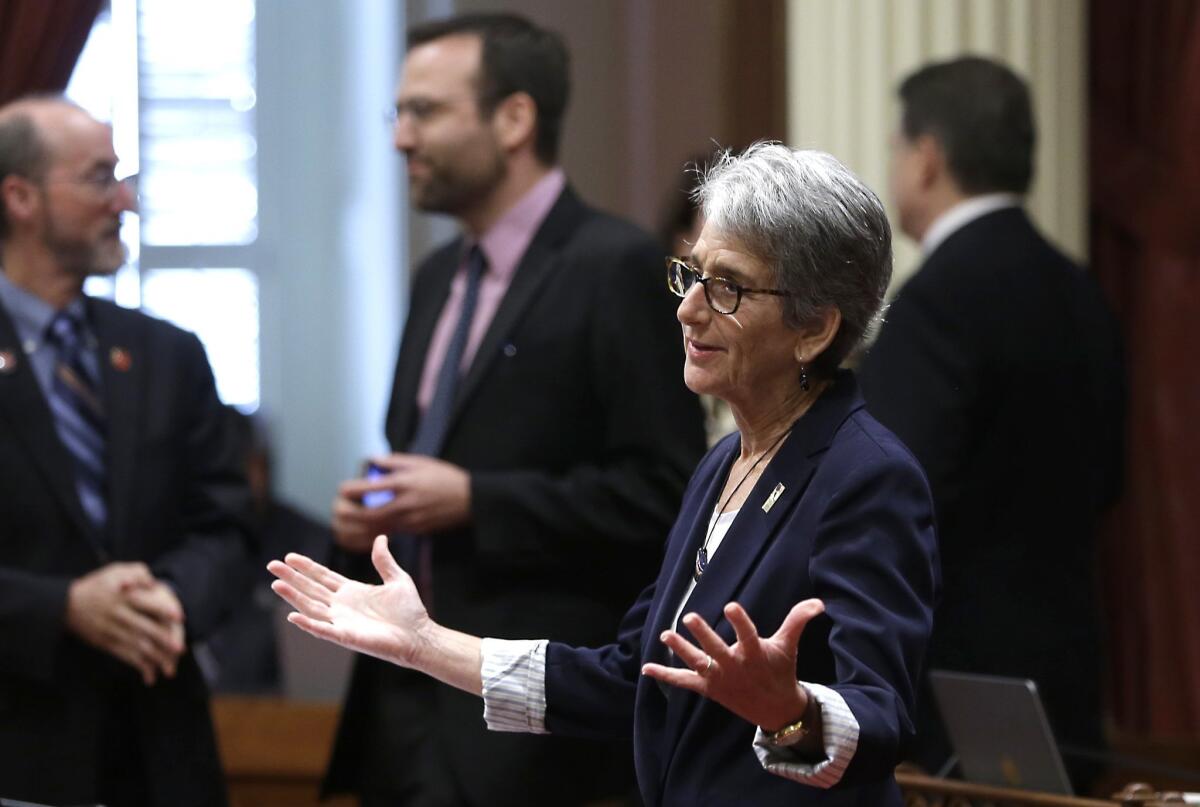Four things workers should know about the California Fair Pay Act

State Sen. Hannah-Beth Jackson (D-Santa Barbara) authored the California Fair Pay Act, which was approved by the state Senate on Monday.
The California Legislature recently passed what could be the strongest equal pay law in the nation.
The bill, called the "Fair Pay Act," is now headed to the desk of Gov. Jerry Brown. One of Brown's aides, Nancy McFadden, tweeted last week that the governor "will sign CA Fair Pay Act when it reaches his desk."
Here's what this bill could mean for workers.
What does the Fair Pay Act do?
The California Fair Pay Act ensures that male and female employees doing "substantially similar" work are paid an equal wage, even if their job titles aren't the same or if they work in different offices for the same employer.
That means a hotel's female housekeepers could challenge higher wages paid to male janitors because they do similar work despite different job titles.
The bill also allows employees to ask about and discuss co-workers' wages without fear of retaliation from employers.
Employers also must prove that wage differentials are based on seniority, merit, a system that measures earnings by quantity or quality of production or a "bona fide" factor other than sex that is a legitimate business necessity. These factors can include compensation for more extensive training, experience or education.
Who does this bill apply to?
The bill applies to public and private businesses.
How will this be enforced?
The law will be enforced by the state Division of Labor Standards Enforcement, which decides wage claims and investigates discrimination complaints.
Employees can file complaints with the agency, which will investigate the matter while keeping the worker's name confidential. If a claim is validated, the Division of Labor Standards Enforcement will request wages on the employee's behalf, said state Sen. Hannah-Beth Jackson (D-Santa Barbara), the bill's author.
The agency can file legal action if the employer doesn't pay.
Employees can also file a civil lawsuit directly through the California Superior Court.
What is the cost to employers?
The law will not cost employers additional money if they are in compliance, said Noreen Farrell, executive director of Equal Rights Advocates, a national civil rights organization that co-sponsored the bill.
"If any employer determines that it has pay differentials based on sex, any cost associated with complying with the law will depend on the scope of its violation," she said in a statement.
The California Chamber of Commerce dropped its initial opposition to the bill after Jackson agreed to clarify the circumstances under which employers could provide a pay differential.
In a statement, the chamber said it believed the clarification would help employers "navigate their pay structure" and "avoid unnecessary litigation" about what business purposes would qualify as a legitimate factor.
For more business news, follow @smasunaga.
Inside the business of entertainment
The Wide Shot brings you news, analysis and insights on everything from streaming wars to production — and what it all means for the future.
You may occasionally receive promotional content from the Los Angeles Times.








